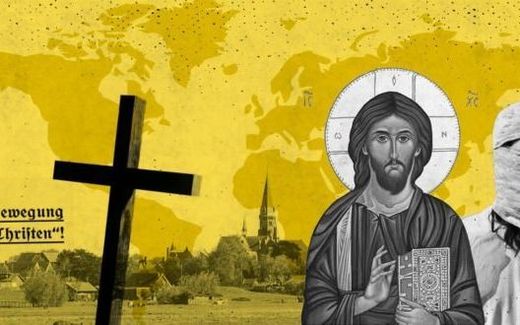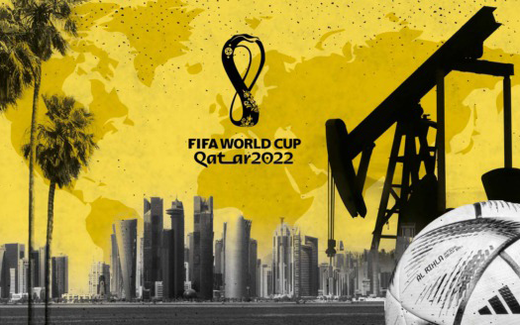The mercilessness of the moral revolution
16-12-2022
Opinion
Jacob Hoekman, RD

Photo RD
Opinion
"Kick out Black Pete", a club of Dutch demonstrators called themselves. They protested against the black skin of the Dutch helper of the white Saint Nicholas. However, supporters of Black Pete turned that around and changed the name to "Kick out Black Pete." And so it happened, with national upheaval as a result.
Sinterklaas celebrates his birthday on December 5. The story goes that he travels from Spain to the Netherlands together with his helpers, the so-called Petes. In the Dutch town of Staphorst, his arrival caused tensions between supporters of Black Pete and those who find the skin colour of the Petes racist.
Us vs them
Journalist Jakob Hoekman researches history to find answers to difficult questions related to the news.
Such a schism can happen just like that and lead to a fuss of enormous proportions. The past few years have proven that, for instance, in the Black Pete discussion. Whereas ten years ago, the racist side of that character was hardly taken seriously, now it is almost unthinkable not to see that side.
But there are many other examples. You could see the criticism of Black Pete as part of the much broader woke discussion, which is all about countering and preventing racism and exclusion, especially when minorities bear the brunt of it.
Another discussion that played much less of a role ten or fifteen years ago is, of course, that surrounding the LGBT movement. Sexual identity, in all its manifestations, has become so central to the public debate in such a short time that you have to be very solid in your convictions to hold old-school views on the issue still.
Another example where the panels are shifting at lightning speed: MeToo. Sexual abuse is of all times, but the way perpetrators are now being exposed is not. The same goes for (male) abuse of power, as the fuss surrounding the Dutch TV presenter Matthijs van Nieuwkerk shows. Cowering at your subordinates was never such a social issue, and Van Nieuwkerk grew up with it. But he has completely fallen off his pedestal in a matter of days.
Revolution
The common denominator in all these social discussions is that old views on many moral issues are overturned at lightning speed. In a few years, society can apparently start thinking completely differently. It is, therefore, no exaggeration to speak of moral revolutions.
Another common denominator is the massive social pressure that comes with these revolutions. People who still hold old views can be mercilessly put down. A carefully built-up reputation of years can be shattered in weeks or even days if your behaviour no longer fits the mould of the fast-changing zeitgeist.
Problematic, however, is that the zeitgeist often tilts only in specific parts. For example, we have had to be against colonialism since, say, the 1960s. And we should favour all forms of expression of human sexuality for about a decade. But the two do not go well together. Look at the discussion about the World Cup in Qatar. The prescribed anti-colonial stance requires us not to bring a country like Qatar back under the noose. At the same time, the LGBT movement demands that Qatar, and in fact, the entire non-West, change its views immediately.
The same trend can be seen concerning minorities, especially those who cannot make a fist of their own. Woke thinking demands that we give a voice to the voiceless. But then again, this does not apply to unborn human life, although there are few groups in society for whom it is more literally true that they are voiceless.
Environment
So there is selective shopping in moral truths. This is not surprising, either. Rapidly shifting moral positions can hardly be internally consistent. Indeed, building a consistent morality is a matter of long breath, of polishing and adjusting.
Therefore, it is often not about the inner consistency of our moral views but about social consensus. It is about what John Locke called "the law of the club". He argued that it is not morality as such but the social environment that is the most important shaping force in our behaviour. As long as there are enough people in our bubble saying the same thing, we adjust our morality accordingly.
Christians, of course, are no exception to that "law of the club". If enough people in our Christian bubble think that Sinterklaas's servants should be black, strong peer pressure emanates from that. There is nothing Christian about that opinion. At most, it is traditional - and even then, based on a tradition that is not that old at all.
Character
Yet major world religions can offer something extra, and that is a framework from which those morals can be derived again and again. Such a framework is also called a worldview.
The great Calvinist theologian Herman Bavinck from the Netherlands wrote the booklet "Christian Worldview" in 1913. Even then, he observed the same problem as today: modern people, in a changing world, are diligently searching for an appropriate worldview, but in doing so, they usually bypass the elements provided by Christian tradition.
And that, while precisely a Christian worldview can resist the zeitgeist, is Bavinck's conclusion. It does not so quickly go along with ever-twisting moral views because a Christian worldview assumes the "absolute nature of norms". You cannot simply give up or exchange some truths. There is such a thing as a "moral world order", ultimately traceable back to God Himself.
And because there is a forgiving God at the basis of that order, there is also room for redemption and grace. For falling down and getting up again. That is good news for people who suddenly find themselves on the wrong side of social morality. Be they the inhabitants of Staphorst or the Matthijses van Nieuwkerk of this world.
This article was translated by CNE.news and published by the Dutch daily Reformatorisch Dagblad on December 13, 2022.
Related Articles






